A Established seven years ago, Ippothesis (Ιππόθεσις) in Attika, Greece, is the country’s only equine legislative advocacy body, and one of the few to investigate cases of horse and donkey abuse.
If you’ve travelled to Greece and you’re an animal lover, it’s certain you would have noticed two things: the number of stray cats and dogs, and donkeys on the islands. And, although locals will have you think they’re “looked after”, what this means to you and them is likely to differ significantly.
Unlike the laws protecting stray animals in Greece, the laws protecting the country’s equine are severely lacking, to the point of being non-existent. Rather than striving to improve on this, last year the government stripped one protection law away.
While there are strong laws in place protecting stray companion animals in Greece. That does not mean these animals are not subjected to abandonment, torture, abuse and neglect. Rather, the challenge is for the laws to be enforced in Greece.
This means for:
1) witnesses to come forward, and lodge a complaint,
2) local authorities to take the complaint seriously and process it,
3) the allegation to be heard in court (this can take many years), and
4) findings made
Among the many challenges affecting Ippothesis is its struggle to find a suitable plot of land (they had to move from their premises). Of course, there is a lot of dormant, government-owned land available in Greece, but getting your foot in the ministry door that can make that happen is less about following proper process and more about knowing someone influential who can facilitate and champion it.
I chatted with the organisations founding member and chair, Roza Roussou.
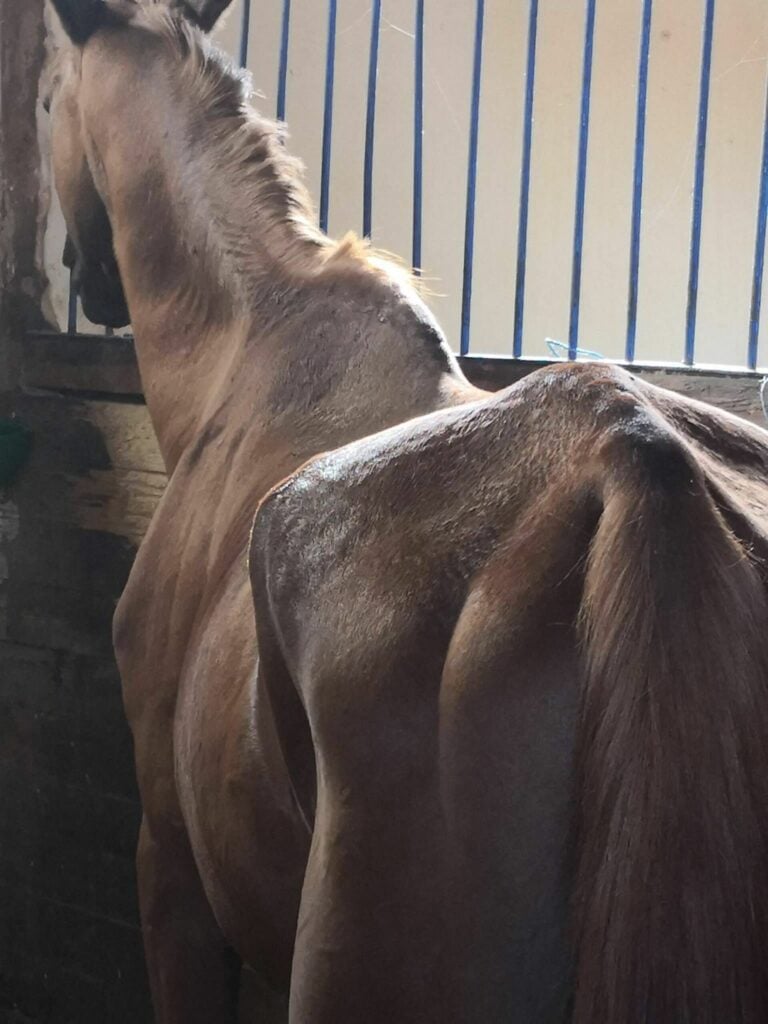
(EP) What is your role at Ippothesis?
(RR) My role is voluntary, and, on a daily basis, involves the investigation of [equine abuse] complaints and the administrative operation of the association. Our collective effort is for people to “hear” the voice of these animals, to learn what is really going on and to wake up. Only in this way will we be able to push political leaders to establish an institutional framework for their protection.
How many animals do you have currently?
We are currently responsible for nine equine in different places in Attica and an elderly mare in Serres, northern Greece. When we found her, we did not think we would be able to save her, she was already old and skeletal. Her will to live proved us wrong.
Is it true that you are looking for new premises?
Yes, it is very important for us and the animals for whom we are responsible to have a stable space and not be forced to move every now and then. There are many areas of land that belong to the state, which unfortunately does not help associations like ours. In Greece, in order for the state to help you, you have to know someone who will mediate. If we manage to find a place where we can financially cover the monthly rent, we will move immediately.
How many volunteers do you have helping?
Unfortunately, the fact that we do not have a permanent place does not allow us to have stable volunteers. Usually a small group of about five people is formed who take action. However, we have managed to create an important network of volunteers throughout Greece on whom we rely, both in the investigation stage of the complaints and in the process of rescuing the animals.
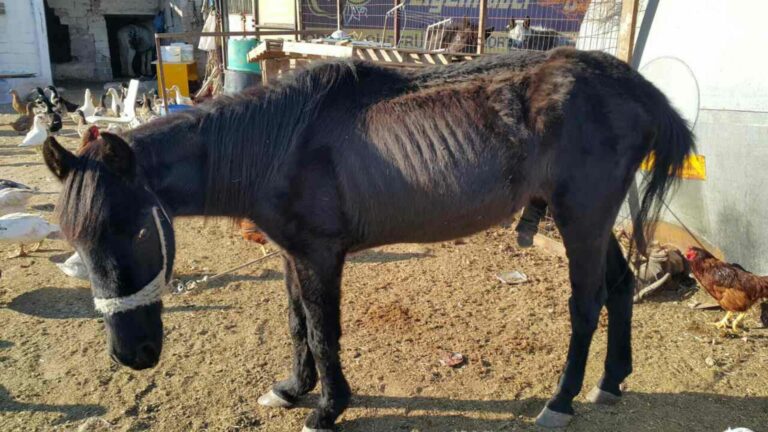
How often do the animals get adopted?
The adoption of an equine is not widespread in our country. Maybe once every two years we manage to find a responsible adoption and proceed with an adoption contract. We have had instances where adopted horses were actually returned because the new owner found a better replacement.
The fact is, for a small amount of money, you can buy a beautiful and capable horse, or carriage or work horse. For that reason, some people think there’s no point putting in the time and effort with a rescued animal that in the end may not be, for example, suitable for riding. I would not say that, in general, there is love for these animals – only that they are useful to people.
Which rescued animal at Ippothesis has inspired you the most?
Odysseus was one of the horses that has moved and inspired us and we will never forget him. He is no longer alive, but his stubbornness to succeed – the way he rejoiced in every moment, endured every pain even when he could not get up – was a lesson for all those who knew him. And the lesson is that we never give up.
Which animal is your favourite?
Each one is our favourite! Every time we introduce a new member into the family, we love it so much that we never want to leave it. Each abused body speaks to us and tells us its story. Each one is a separate character with different behaviour and emotions. By observing their body and their reactions you see signs (from the wire that tied their legs, for example). You notice that another is afraid of human presence and walks away, while another attacks because he thinks he will be hit again. There is so much violence and mistreatment of equine that when you save them it is impossible not to remember and not to hurt for each one individually.
In an ideal world what would you hope for Ippothesis?
The ideal for us would be to achieve traceability of equine in Greece and an institutional framework in accordance with veterinary and European protocols to ensure their protection.
How much does a bale of hay cost today? How long does that last?
Today, a bale of hay sells at around €15, compared with under €8 two years ago. The purchase price has jumped from 12 cents per kilo to 40 cents per kilo. In a recent invoice. we paid €678 to feed four horses for only two months. The grass was imported and not of good quality, but it was the only one we could find in the industry. The increase in feed prices started in 2021 but in recent months the situation is really tragic.
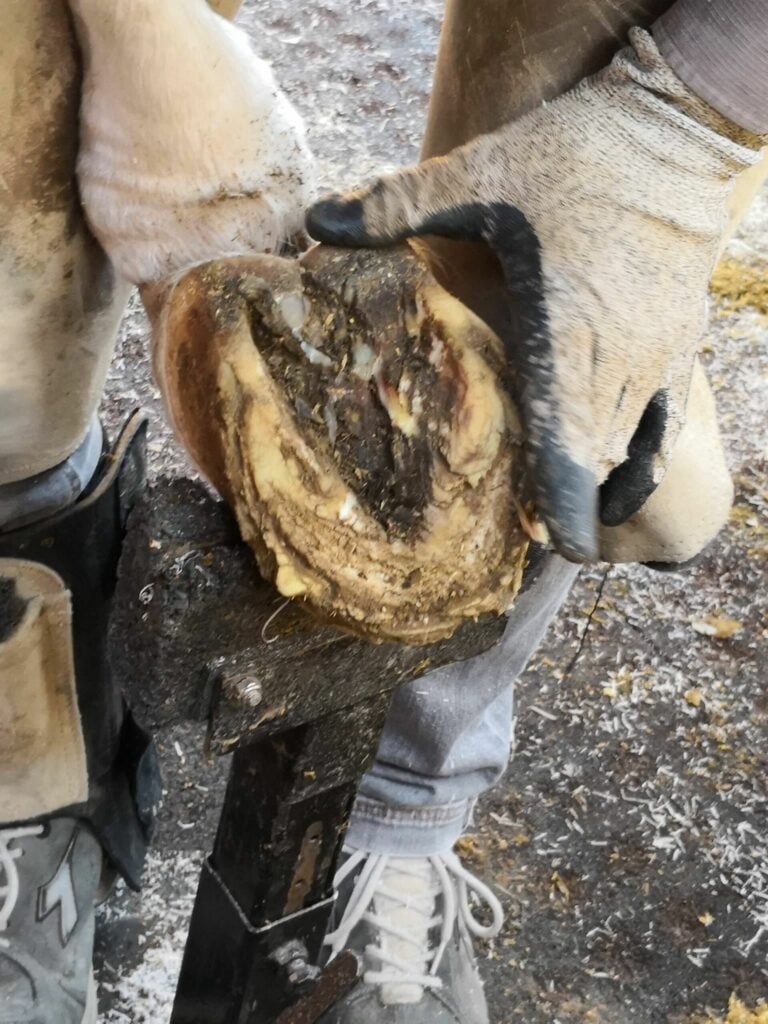
Tell us a bit about Greek laws protecting equine.
There is no specific legislation for equine in Greece: no registration, no electronic database, and no welfare protocol that must be followed by those who use them. When they’re no longer useful, they are transported across a border with a simple transfer paper and no one knows where they end up.
When we at Ippothesis want to help an equine, we use a law for the protection of animals, known as 1981, of N 1197. It is the only legislation that concerns all categories of all animals. Unfortunately, with the new ruling, National Law 4830/2021, equine are excluded from the category of pets for the first time. That is, if you adopt a horse from our association to live with you on your property as a pet, this new law prohibits it and you risk paying a fine of €1,000.
Their transport and movement is impossible to control since there is no legislation to identify them and there can be no control mechanism for any communicable infectious diseases.
In our country, equine are unprotected because the competent ministry does not want to spoil its relationships with those who use them. You can have as many horses as you want, wherever you want, as you want, sell them without a title deed and even exchange them for a gun. Their breeding and purchase is done under miserable conditions and without any control.
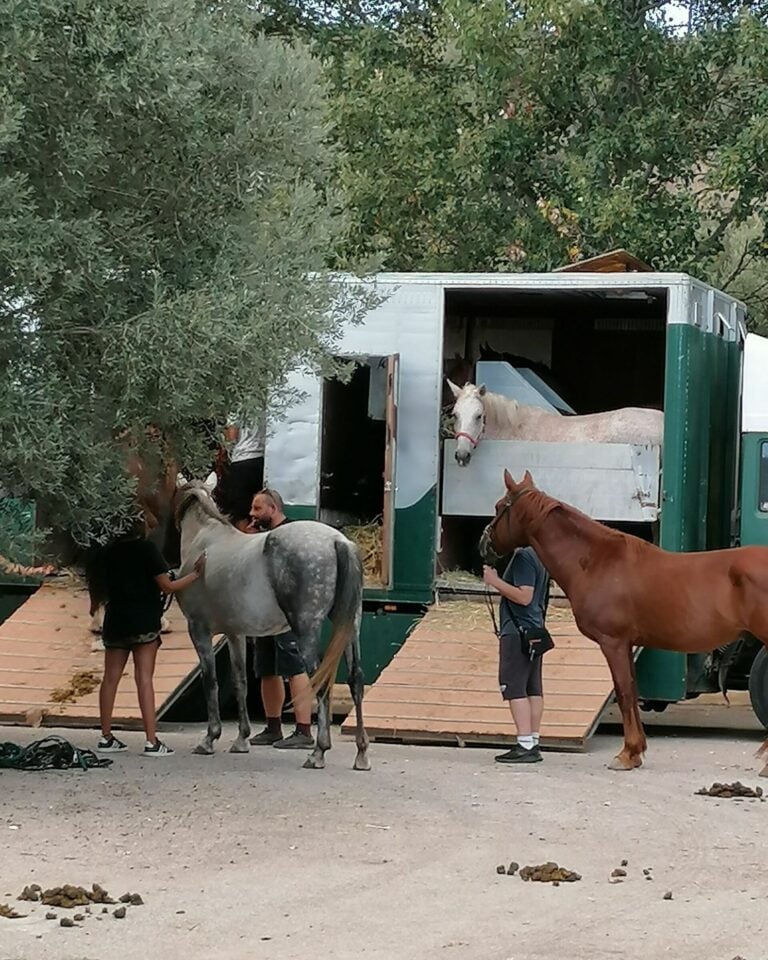
What else do you want people to know about Ippothesis?
Ippothesis is the only association that strives to implement for the first time in Greece legislation on traceability and protection of equine – even filing a complaint against our country for non-implementation of European legislation – while we have repeatedly submitted a proposal for a specific institutional welfare and protection framework.
We do not receive any public or private sponsorship that could cover our fixed expenses and, fortunately, there are organisations like yours that give us a breath of life. We will not stop if we do not succeed.
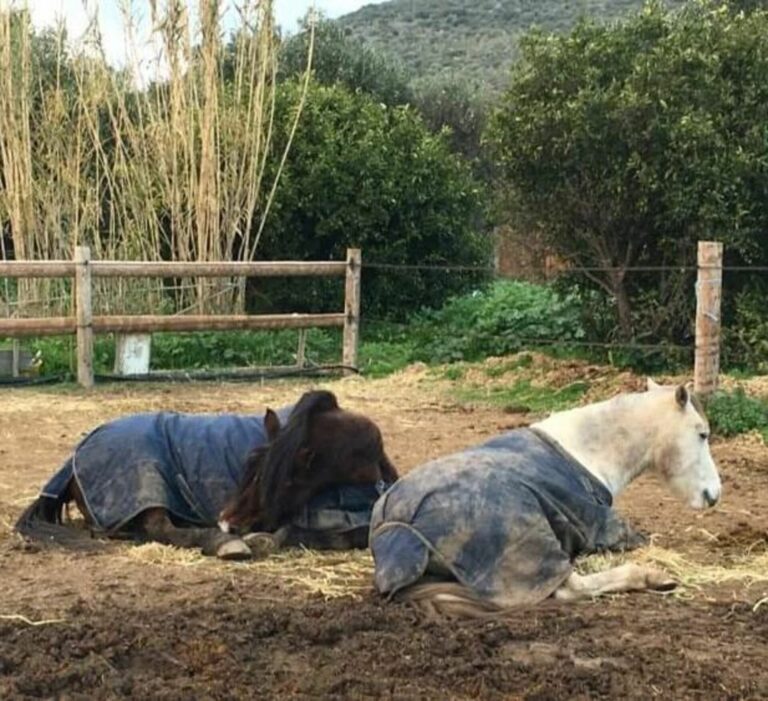
What’s one thing that people can do to help?
If people could support our resolution on mandatory equine registration, that would help us a lot. The more signatures there are, the louder our voices can reach the political leaders of our country; leadership which unfortunately has been indifferent to the wellbeing of equine for decades.
The Penny Marathon, which provides support and a voice for stray, abandoned, neglected and abused companion animals (cats and dogs) recently donated a second sum of €1,000 towards the purchase of hay for Ippothesis.
Sign the petition to improve equine protection laws here: https://chng.it/5sprJJCG









